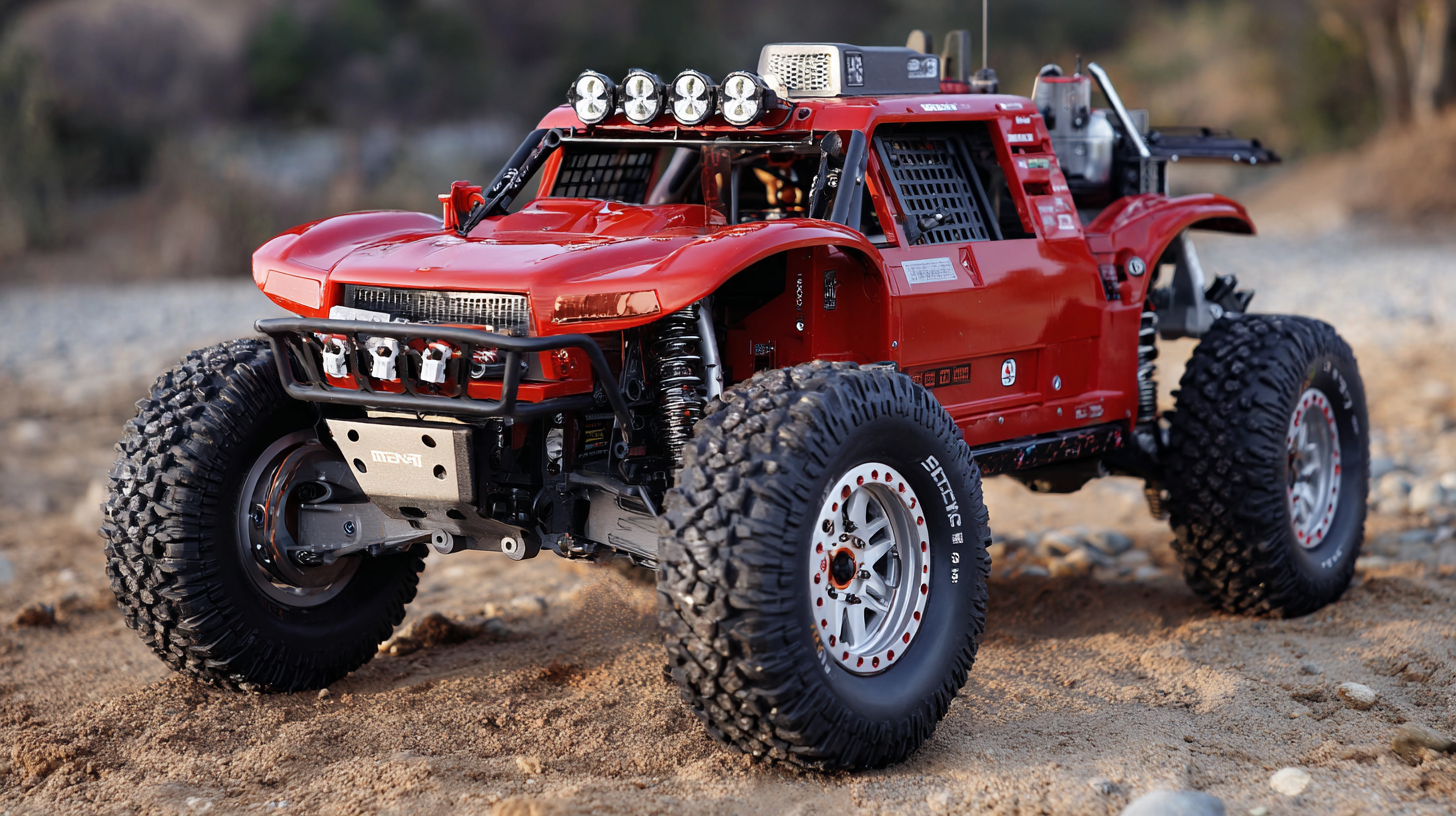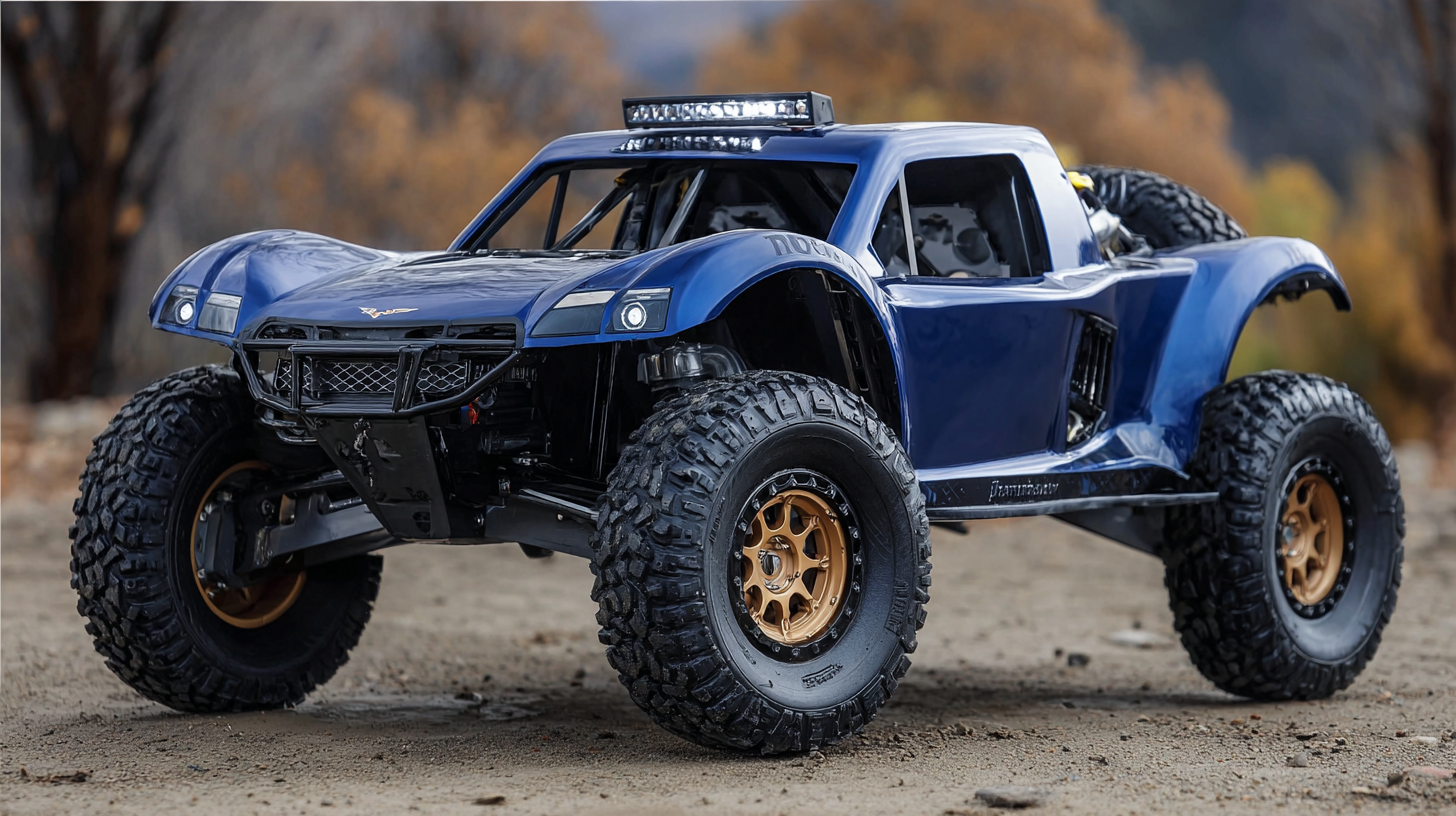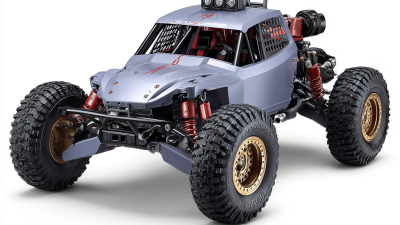The market for Gasoline RC Cars is experiencing a significant surge, with recent industry reports indicating a projected growth rate of over 15% annually through 2025. Enthusiasts are increasingly drawn to the unique combination of speed, performance, and realism that gasoline-powered remote control vehicles offer, making them a popular choice among hobbyists and racers alike. As we delve into the top 10 gasoline RC cars to buy in 2025, it is essential to consider not only the specifications and features but also expert opinions from seasoned professionals in the field.

One such expert, Dr. James Peterson, a leading figure in the RC car industry, emphasizes the competitive nature of the gasoline RC segment. He states, "The right gasoline RC car can elevate your racing experience, providing unmatched power and performance on and off the track." This highlights the importance of choosing the right model to enhance the overall enjoyment and performance of your racing adventures. In this buying guide, we will explore the top contenders in the gasoline RC car market, equipping you with the knowledge to make an informed decision that aligns with your racing needs and aspirations.
When considering gasoline RC cars in 2025, there are several key features that can enhance ultimate performance. Firstly, engine power and efficiency are crucial. Look for high-performance engines with advanced cooling systems that can maintain optimal temperatures during prolonged use. The choice of fuel type can also impact performance, so selecting cars that utilize high-octane gasoline can provide better acceleration and speed.

Another important aspect is the car’s suspension system. A superior suspension setup allows for better handling and stability, especially on varied terrains. Adjustable shocks and premium tires can greatly affect traction and overall driving experience. Additionally, a solid chassis design should not be overlooked; it should provide durability while keeping the weight low for improved maneuverability. Lastly, consider the availability of aftermarket parts as these can enhance customization options, allowing for tweaks that cater to individual preferences and racing conditions.
In the competitive world of gasoline RC cars, understanding fuel efficiency and speed metrics becomes essential for enthusiasts looking to make informed purchases. A recent analysis indicates that models such as the top contenders in the market showcase a variance in fuel consumption, with advanced designs optimizing energy use. For instance, cars engineered with aerodynamic structures can achieve greater mileage, often surpassing the standard consumption rates observed in earlier models. Reports suggest that some high-performing models offer up to a 20% increase in fuel efficiency compared to their predecessors, making them more appealing to environmentally conscious consumers.
Speed is another critical metric influencing buyer decisions. Performance data from several recent evaluations reveal that leading gasoline RC cars can attain speeds exceeding 60 mph, thanks to advancements in engine technology and lightweight materials. These innovations not only enhance the speed capabilities but also improve acceleration times, with some models reaching full throttle in under four seconds. This combination of efficiency and performance positions the latest gasoline RC cars as optimal choices for hobbyists seeking thrilling experiences while remaining mindful of fuel management in their usage.

Maintaining the longevity of your gasoline RC car is paramount to enjoying its performance over the years. Regular maintenance not only ensures optimal functioning but also extends the lifespan of your model, thus saving you costs in the long run. Experts suggest that performing routine checks, such as inspecting the fuel lines and ensuring the engine is clean, can make a significant difference. According to industry insights, a well-maintained gasoline engine can outperform inadequately maintained counterparts by up to 30% in fuel efficiency, particularly during peak performing seasons like summer.
Moreover, proper storage conditions play a critical role in the durability of your gasoline RC car. High temperatures can increase the risk of fuel degradation, leading to poor engine performance. Maintaining your vehicle in a cool, dry environment can prevent such issues. Recent advancements in technology have shown that similar principles apply to larger vehicles as well, where regular maintenance schedules have been linked to improved reliability and longevity. Keeping your gasoline RC car in top condition not only enhances your driving experience but also contributes to the sustainability of your investment in the long run.
When considering gasoline-powered RC vehicles, understanding the engine type is crucial to optimize performance. Unlike electric models, gasoline engines provide longer run times and a greater sense of realism for enthusiasts. The most common engine options found in RC cars include two-stroke and four-stroke engines. Two-stroke engines tend to deliver higher power output for their size, making them ideal for high-speed applications. However, they often require more maintenance and have a shorter lifespan compared to their four-stroke counterparts, which are known for their durability, fuel efficiency, and lower emissions.
Data from industry reports indicate that the performance of gasoline RC cars can vary significantly based on engine type. For instance, two-stroke engines can achieve power-to-weight ratios that exceed 1:1, allowing for thrilling acceleration, while four-stroke engines typically provide smoother torque delivery, making them better suited for precision driving experiences. As technology progresses, newer gasoline additives are being developed that further enhance performance by improving combustion efficiency and reducing harmful emissions. This trend not only benefits hobbyists seeking better performance but also aligns with broader automotive developments in engine efficiency and environmental sustainability.
As the market for gasoline-powered remote control (RC) cars evolves, there is a noticeable trend towards eco-friendly options that cater to environmentally conscious consumers. By 2025, manufacturers are increasingly focusing on developing models that utilize sustainable materials and technologies. These innovations not only reduce the carbon footprint of production but also enhance the performance and longevity of the vehicles. Features such as biodegradable components and energy-efficient engines are becoming integral to new designs, meeting consumer demand for greener alternatives without sacrificing speed or power.
In addition to sustainable materials, the rise of hybrid models signifies a broader shift towards eco-consciousness in the RC car community. These hybrid vehicles combine traditional gasoline engines with electric systems, providing a dual advantage: longer operational times and reduced emissions. Enthusiasts are beginning to seek out options that align with their values, encouraging brands to prioritize eco-friendliness in their product development. This shift not only reflects a changing consumer mindset but also paves the way for a more responsible and innovative future in the RC car industry. As 2025 approaches, the trend towards environmentally friendly gasoline RC cars is set to redefine industry standards and consumer expectations alike.






